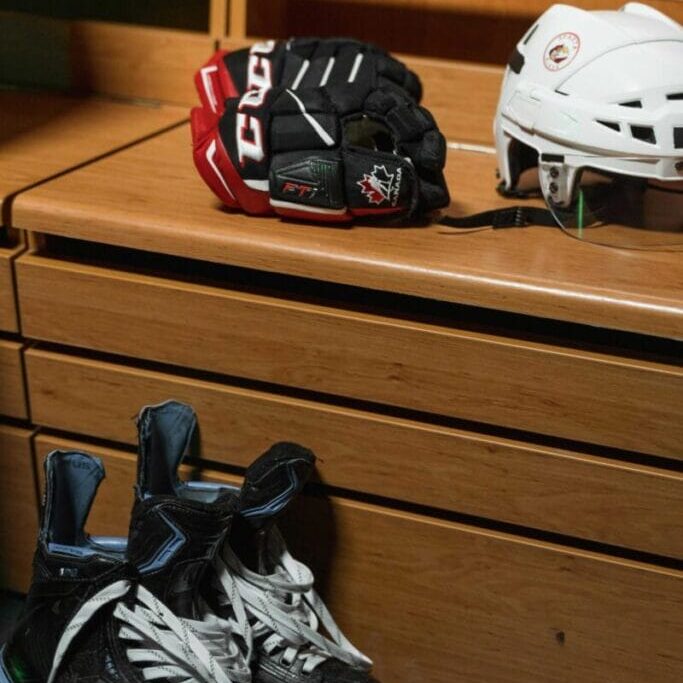
From high school to the NHL, hockey culture isn’t healthy
The Hockey Canada trial reflects a culture that starts long before the big leagues
I’m deeply disturbed by the sexual assault allegations involving former world junior hockey players, and even more by the verdict. But am I surprised? Not at all. I’ve been watching this play out in smaller ways all my life.
Michael McLeod, Alex Formenton, Carter Hart, Dillon Dubé and Cal Foote were found not guilty of sexually assaulting a woman, known as E.M., in a London, Ont. hotel room while celebrating their world championship win in 2018. The judge’s verdict described E.M. as “unreliable,” despite Hockey Canada settling a civil suit with her for an undisclosed amount in 2022 and police pursuing charges against the accused based on “reasonable and probable grounds.”
No matter the verdict, what they did was sexual misconduct. She was drunk, they coordinated their stories afterward and they asked her to record a video saying she consented. Yet online, people claimed that she “wanted it” and suggested she should be prosecuted.
This reaction doesn’t appear out of nowhere. It’s the quiet inheritance of a culture that values talent and loyalty over decency and accountability.
Growing up in Toronto, everyone knew who the “hockey boys” were. They weren’t just kids on a team — they were their own social class. They wore jackets with their last names stitched on the back and patches showing their tier. In high school, I thought that was the highest version of manhood — disciplined, dedicated, driven. Being close to them was like currency; it shaped where you stood.
They got to leave class early for hockey. Male teachers would pat them on the back, calling out, “Good job, buddy,” and I’d watch, wondering why I never got that kind of pass. But that attention came with blind spots. Bad behaviour was overlooked.
The hockey boys always banded together if one got called out. Group chats full of shared nudes, gossip and cruelty reinforced the idea that their actions didn’t have consequences.
Hockey boys don’t just grow up and leave that culture behind. Too often, they grow into it.
But this culture doesn’t just hurt women — it hurts boys too. Their loyalty to each other was so absolute that crossing one of their own was almost sacrilegious. “Play through the pain” wasn’t just about bruises; it was about turning boys into men who see weakness as failure.
I don’t know what it’s like to be a teenage boy, especially one playing hockey, but I do know what it’s like to be a teenage girl. You learn early on that the way the world sees you decides everything: how much respect you’re given, how seriously you’re taken, how quickly you can be dismissed.
That same culture, where entitlement goes unchecked and silence is rewarded, is exactly what we saw play out in the trial.
I’m not surprised by the outrage over their “careers being ruined.” That’s the easy story to tell. Harder to reckon with is the part hardly anyone sees — these boys were elevated from the beginning. But what did E.M. inherit from all this? Fear? Silence?
You can’t gauge reasonable doubt in a case like this by only looking at texts, videos or testimonies — so much nuance is missing. Trauma pushes people to comply, perform or appease when they feel threatened. For many women, going along can feel like the safest option, even if it’s not what they want; it’s an attempt to placate the aggressor. It’s far more than just fight or flight.
I am devastated for E.M. I am heartbroken for every victim who watched this unfold. I am crushed for every person who this made feel dismissed, shamed and small.
That is why the NHL and Hockey Canada’s responses matter. Suspending players and keeping them off the ice are not just acts of individual accountability; they are statements toward a culture that has long looked the other way, that this behaviour will no longer be ignored.
Changing hockey culture requires much more than this. It means confronting entitlement, misogyny and the silence baked into the system, starting in locker rooms, classrooms and the hallways where it all begins.
I stand with E.M.
For additional support, please refer to the Ontario Coalition of Rape Crisis Centres.






